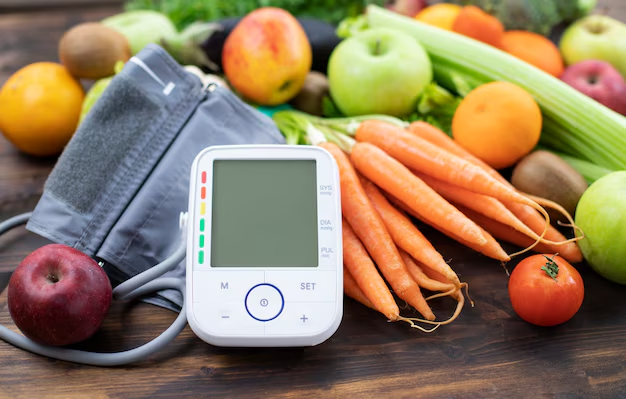Your Guide to What Are Healthy Foods For Diabetics
What You Get:
Free Guide
Free, helpful information about Diabetes FAQ and related What Are Healthy Foods For Diabetics topics.
Helpful Information
Get clear and easy-to-understand details about What Are Healthy Foods For Diabetics topics and resources.
Personalized Offers
Answer a few optional questions to receive offers or information related to Diabetes FAQ. The survey is optional and not required to access your free guide.
Discover the Best Healthy Foods for Managing Diabetes
Maintaining a healthy diet is crucial for individuals managing diabetes, as it helps control blood sugar levels and prevents complications. But navigating the myriad of food choices can be challenging. Let's explore some of the best foods that are not only delicious but also incredibly beneficial for those with diabetes.
The Power of Whole Grains
Whole grains such as brown rice, quinoa, oats, and whole grain bread are excellent choices for diabetics. They have a lower glycemic index and provide a steady release of glucose into the bloodstream, preventing sudden spikes in blood sugar levels. Plus, they’re rich in fiber, which promotes a feeling of fullness and helps control weight.
Vegetables: Fresh, Frozen, or Canned
Incorporate a variety of vegetables into your diet. Leafy greens like spinach, kale, and Swiss chard are packed with vitamins and minerals, and they're very low in calories and carbohydrates. Non-starchy vegetables such as broccoli, cauliflower, and bell peppers are other great options. When choosing canned or frozen varieties, look for those without added sugars or sauces.
Lean Proteins Matter
Proteins can stabilize blood sugar levels, making them an essential part of a diabetic diet. Opt for lean meats like chicken, turkey, or fish. Fish that are high in omega-3 fatty acids, like salmon and mackerel, also offer cardiovascular benefits. Plant-based proteins, such as beans, lentils, and tofu, are excellent alternatives that provide fiber and nutrients without excessive saturated fat.
Bountiful Berries and Fruits
While fruits contain natural sugars, many are also high in fiber and offer significant health benefits. Berries, such as strawberries, blueberries, and raspberries, are particularly good for diabetics because of their low sugar content and high antioxidant levels. Apples, pears, and citrus fruits can also be part of a balanced diet but should be consumed in moderation.
Nuts and Seeds for Healthy Fats
Incorporating healthy fats is vital for a balanced diet. Nuts and seeds, including almonds, walnuts, sunflower seeds, and flaxseeds, provide essential fatty acids and have a minimal effect on blood sugar. Grab a small handful as a snack, or sprinkle them on salads and yogurt for added nutrition and crunch.
Dairy: Choose Wisely
Include low-fat or non-fat dairy options, such as Greek yogurt, skim milk, or low-fat cheese, which provide calcium and vitamin D without excessive calories. Be mindful of flavored versions, which can contain added sugars, and consider opting for those fortified with additional nutrients.
As you navigate your journey through diabetes management, it's important to consider more than just dietary changes. Many individuals face financial challenges due to increased medical expenses and dietary needs. Fortunately, a variety of financial and educational resources can assist in making the journey smoother and more sustainable.
📌 Helpful Resources for Financial and Educational Support
- 🥦 Supplemental Nutrition Assistance Program (SNAP): Provides financial assistance for purchasing healthy food.
- 🏥 Medicaid and Medicare Benefits: Health insurance options for low-income individuals to cover medical and dietary expenses.
- 📚 Educational Grants: Support continuing education to improve career prospects and financial stability.
- 💳 Credit Counseling Services: Offers guidance for managing credit card debt and improving financial health.
- 🛍️ Community Food Programs: Local initiatives offer access to free or discounted nutritious food options.
By understanding the role of healthy foods in managing diabetes and taking advantage of available support resources, you can better navigate the complexities of diabetes care and achieve a healthier lifestyle.
What You Get:
Free Diabetes FAQ Guide
Free, helpful information about What Are Healthy Foods For Diabetics and related resources.

Helpful Information
Get clear, easy-to-understand details about What Are Healthy Foods For Diabetics topics.

Optional Personalized Offers
Answer a few optional questions to see offers or information related to Diabetes FAQ. Participation is not required to get your free guide.


